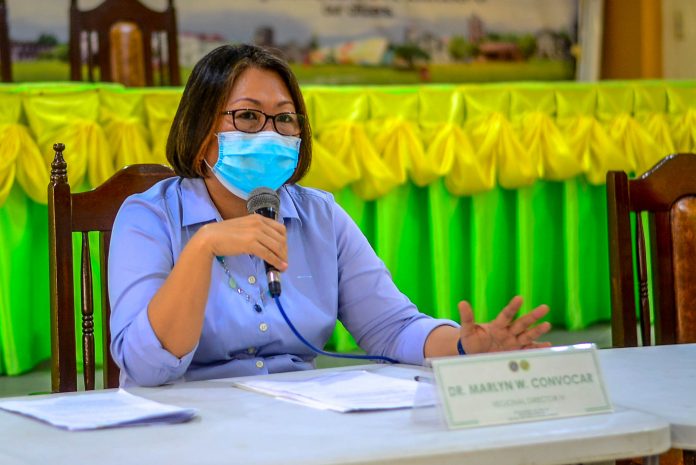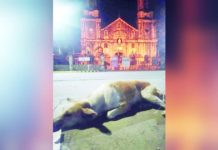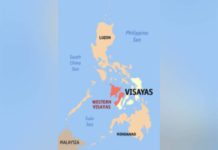
ILOILO City – There should be stringent screening of returning locally stranded individuals (LSIs) in all of Western Visayas’ entry points – airports and seaports. They could be carriers of the coronavirus disease 2019 (COVID-19), according to the Department of Health (DOH).
Director Marlyn Convocar said DOH Region 6 expects a surge in returning LSIs next week. Airports and seaports could be resuming operations by June 16 when the modified general community quarantine would have been further downgraded.
Western Visayas’ indigenous cases of COVID-19 are actually becoming sparse and this is an encouraging sign, according to Convocar.
However, she stressed, people should not be complacent because returning LSIs and overseas workers are potential carriers of SARS-CoV-2, the virus that causes COVID-19.
“So dapat stringent gid ang aton public health safety measures sa mga port of entries,” said Convocar yesterday.
Indigenous COVID-19 cases refer to local transmissions of the disease. These are individuals with no travel history to areas with COVID-19 cases but contracted the disease through close contact with someone infected within their locality.
During Wednesday’s meeting at the Iloilo City hall organized by Mayor Jerry Treñas, local chief executives agreed that all returning LSIs must be subjected to rapid COVID-19 test, according to Convocar.
Those who test positive for the disease would be subjected to reverse transcription polymerase chain reaction (RT-PCR) for further verification.
Convocar said DOH-6 would bolster the screening of LSIs by focusing on the symptoms that these people could be exhibiting.
“This time we would be symptom-driven in our approach. That’s because we now know that this disease’s transmission usually occurs with symptomatic cases, 80 percent. This is why a symptomatic suspected case is subjected to RT-PCR test,” said Convocar.
The most common symptoms of COVID-19 are fever, tiredness, and dry cough.
Some patients may have aches and pains, nasal congestion, runny nose, sore throat or diarrhea. These symptoms are usually mild and begin gradually. Some people become infected but do not develop any symptoms and don’t feel unwell.
Convocar stressed the importance of observing COVID-19 transmission preventive measures – wearing of facemask, observing physical distancing and handwashing.
“We should not let our guard down. These preventive measures increase our resilience to the disease. Our goal is to prevent the spread of the virus,” said Convocar.
She cited a study which found out that facemask reduces disease transmission by 85 percent and physical distancing by 70 percent.
For her part, Dr. Sophia Pulmones, chief of DOH-6’s Local Health Support Division, said local government units must continue their “surveillance of individuals or patients who may be exhibiting signs and symptoms of pneumonia, difficulty of breathing, fever and cough or those individuals exhibiting mild signs and symptoms of respiratory illness.”
“Basi ini nga mga individuals will turn out to be positive sa COVID-19,” said Pulmones.
In DOH-6’s case classification of 130 confirmed COVID-19 cases, 27 cases or 21 percent showed signs and symptoms of Severe Acute Respiratory Infection (SARI) and 18 cases or 14 percent exhibited Influenza-like Illness (ILI).
The remaining 85 cases or 65 percent were asymptomatic.
Here’s the breakdown of the 130 cases (as of June 11, 2020):
* Aklan – six
* Antique – 14
* Capiz – six
* Guimaras – zero
* Iloilo province – 21
* Negros Occidental – three
* Bacolod City – 11
* Iloilo City – 19
* Repatriates – 50
COVID-19 is the infectious disease caused by the most recently discovered coronavirus. This new virus and disease were unknown before the outbreak began in Wuhan, China in December 2019.
People can catch COVID-19 from others who have the virus. The disease can spread from person to person through small droplets from the nose or mouth which are spread when a person with COVID-19 coughs or exhales.
These droplets also land on objects and surfaces around the person. Other people then catch COVID-19 by touching these objects or surfaces, then touching their eyes, nose or mouth./PN



